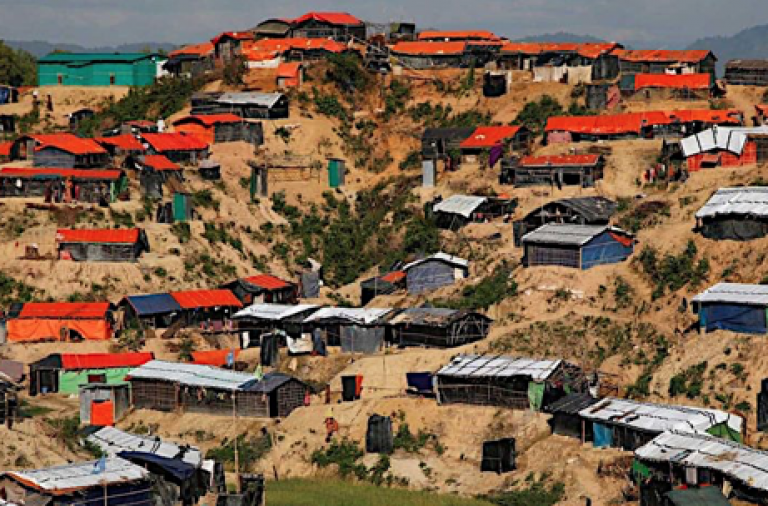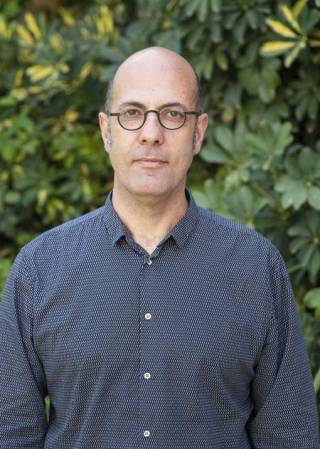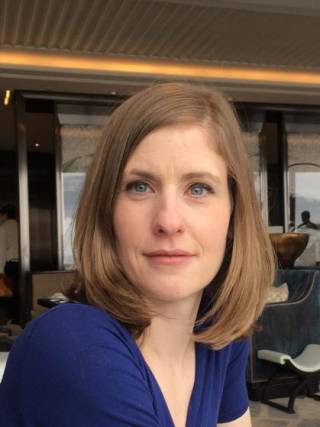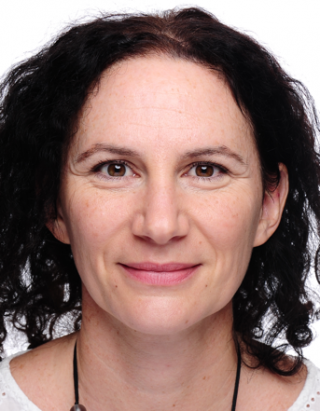UCL Second Humanitarian Summit on 19th June 2018
19 June 2018, 9:00 am–5:00 pm

Event Information
Open to
- All
Location
-
UCL Roberts G06 and Roberts Foyer
We invite the UCL community, our partners, collaborators and others with humanitarian interests to join us for the second UCL Humanitarian Summit. Register now (see button at end of page).
Summit Programme
(click on each session to find out more)
- 08:30 - 09:15 Registration
-
- 09:15 - 09:30 Welcome and Introduction
-
From Professor Peter Sammonds and Rosanna Smith
- 09:30 - 11:00 Panel on Conflict Migration and Health
-
Chair: Prof Ibrahim Abubakar, Director of the Institute for Global Health (IGH), UCL
Co-convenors: Dr Miriam Orcutt and Dr Delan Devakumar, both UCL IGH
This session will draw on one of the themes of the UCL-Lancet Migration and Health Commission, namely, forced migration. Our panel will present 3-4 country case studies, and will use this as the basis for a discussion on the changing nature of conflict and the impact on health, with a focus on taking action on improving health in conflict/migration.
Speakers and themes
Syria - Dr Miriam Orcutt, Migration and Health Specialist MSF; and UCL Institute for Global Health
Focus: direct attacks on healthcare and HCWs, health care worker migration
Yemen - Andre Heller Perache, MSF Board of Directors; previous head of MSF UK Programmes Unit
Focus: internal displacement, health system disintegration
South Sudan - Elizabeth Harding, Humanitarian Advisor, MSF
Focus: internal and cross border displacement from protracted conflict
Libya - Dr Syed Arif Hussain, International Organization for Migration, Libya
Focus: detention conditions and cross border care
- 11:00 - 11:30 Coffee Break
-
- 11:30 - 12:30 Student Innovation to Address Humanitarian Challenges
-
Chair: Dr Rosanna Smith
Student teams from the UCL How to Change the World summer programme will have the opportunity to show outputs from their projects that could be used to address humanitarian challenges. Presentations will include:
- Solar powered lighting for post-earthquake Nepal, Weihang Huang, Subhana Ahmad, Nicole Ling, Rachel Ng, Levinson Tan
- Electricity generation from excess stove heat in Ugandan refugee camps, Abdur Rejah, Galen Nedelchev, Karan Kremer, Aaliya Manji, John Oikonomou
- 12:30 - 14:00 Lunch
-
Not Provided
- 14:00 - 15:30 Humanitarian Technology for Post Disaster Housing
-
Convenor: Professor Alan Smith, UCL Space and Climate Physics
Chair: Professor Michael Emes, Director, UCL Centre for Systems Engineering
This session will focus on 'Post Disaster Housing' and will explore how technologies (both new and those mature in other domains) might be utilized to address the needs of individuals displaced through disaster, either man-made or natural. Scope:
- Building materials
- Treatment of materials
- Building design
- Rapid site inspection and preparation
- Building services including water, heating, power and communications
The session wishes to explore the maturity of technologies, their applicability to Post Disaster Housing, and their route to implementation.
Outline:
14:00 - 14:05 - Introduction (Michael Emes, UCL Dept Space and Climate Physics)
14:05 - 14:20 - Some Basic Principles for Post-Disaster Housing (Cassidy Johnson, UCL Bartlett Development Planning Unit)
14:20 - 14:30 - Post-Disaster Housing Reconstruction Model in Rural Punjab, Pakistan (Saima Gulzar, Department of Architecture, University of Management and Technology, Lahore)
14:30 - 14:40 - Building for Change, Education for Syrian Children in refugee camps, (Amer Alwarea, UCL Bartlett Real Estate Institute)
14:40 - 14:50 - Real-time mapping of tropical cyclone wind fields (Adam Lee, UCL Department of Space and Climate Physics)
14:50 - 15:00 - Post disaster shelter response following the 2010-13 flooding in Southern Pakistan (Lottie McCathy, Arup)
15:00 - 15:10 - Topic TBD (Rob Wicks, UCL Department of Space and Climate Physics)
15:10 - 15:30 - Plenary Discussion
- 15:30 - 16:00 Coffee Break
-
- 16:00 - 17:30 Panel on Violence Health and the Urban
-
Chair: Prof Haim Yacobi, UCL Development Planning Unit (DPU)
Confirmed Panellists: Prof Camillo Boano, UCL DPU; Dr Jenevieve Mannell, UCL IGH
Urban areas are central locus of state violence, structured inequalities and trauma, and according to the ICRC (2015) over 50 million people today are directly affected by entrenched forms of violence, whether through war, forced displacement and/or sociopolitical exclusion. Under such global burden, it seems necessary to systematically analyse the different spatial disruptions brought by violence and align them with the health effects it brings on both collectives and individuals on one hand, and to critically discuss humanitarian approach to it on the other. Consequently in this panel we aim focussing on three key questions:
1. How current research on conflict and health can be approached as the study of spatial violence, where violence is understood as a form of social, (geo)political and economic order, that is not an interruption but rather a sustained process?
2. How space\health nexus becomes an equally (geo)political and economic actor?
What is the impact (and limitations) of humanitarian organisations, discourses and practices of intervention in health, human safety, rights, opportunities and risks?
- 17:30 - 19:00 Reception
-
Refreshments and snacks will be provided at this networking reception
Speaker Profiles
Panel on Conflict, Migration, and Health
- Chair - Prof Ibrahim Abubakar, Director, UCL Institute for Global Health
-
Ibrahim Abubakar (MBBS, DPH, MSc, PhD, FFPH, FRCPE, FRCP) is Director of the UCL Institute for Global Health. He led the UCL Centre for Infectious Disease Epidemiology, UCL-TB and was a senior investigator at the MRC Clinical Trials Unit. He was head of TB at Public Health England. Prior to his appointment at UCL, he was Professor in Health Protection at the Norwich Medical School. He qualified in medicine in 1992 and initially trained in general medicine before specialising in public health medicine. His academic public health training was undertaken at the London School of Hygiene and Tropical Medicine, University of Cambridge and the University of East Anglia. He serves on/chairs several expert/advisory groups for the WHO and the European Centre for Disease Prevention and Control.
- Dr Miriam Orcutt, Migration and Health Specialist, MSF; and UCL IGH
-
Miriam Orcutt is a medical doctor, academic researcher and humanitarian consultant, currently working with Médecins sans Frontières Belgium as a Migration Health Specialist and also as Coordinator of the UCL-Lancet Commission on Migration and Health. She is a Visiting Research Fellow at the Conflict and Health Research Group, King's College London, and a Steering Committee Member of the Syria Public Health Network. She holds an MSc in Medical Anthropology with Distinction from Durham University and has been awarded an ESRC Studentship to complete a PhD on health system response to mass displacement with a focus on Syrian refugee mental health.
- Co-Convenor: Dr Delanjathan Devakumar, UCL Institute for Global Health
-
Dr Delanjathan Devakumar is an Academic Clinical Lecturer in public health. He qualified from the University of Manchester and then worked in clinical paediatrics in the UK and New Zealand. After completing a Diploma in Tropical Medicine and Hygiene, he worked with Medecins Sans Frontieres as a paediatrician in Pakistan in 2006 (Kashmir earthquake), in South Sudan (cholera outbreak) in 2007 and Myanmar (post-cyclone Nargis) in 2008. He completed a masters in public health at the London School of Hygiene and Tropical Medicine and a PhD from UCL, funded by the Wellcome Trust. Delan is a member of the Royal College of Paediatrics and Child Health Health Promotion committee and Global Health committee and the Faculty of Public Health Global Violence Prevention group. He is a commissioner and steering group member of the UCL-Lancet Commission on Migration and Health.
- Dr Syed Arif Hussain, International Organization for Migration, Libya
-
Dr. Syed Arif Hussain is a public health and health system professional with basic qualification in medicine and post-graduation in Public Health and Epidemiology, with about 25 years of experience in the field of public health with diverse set of disciplines that ranges from programmes to policy and strategic level advisory role. He has considerable contribution towards health response in humanitarian settings during emergencies and disasters.
Dr. Hussain is currently managing the migration health programme of IOM Libya on the health of migrants, IDPs and affected host communities, as Migration Health Coordinator. Part of this programme includes managing medical assistance for the migrants detained in the holding centers mainly for irregular migrants, beside other IOM assistance to the country.
- Andre Heller Perache, MSF Board of Directors and former head of MSF UK programmes
-
Andre Heller Perache is a member of MSF's board of directors following 12 years w the organisation. With an MSc from the LSE in conflict studies, he worked in various capacities in the field w MSF and was country director in Yemen, South Sudan, Central African Republic, and Syria. Andre was appointed as MSF UK's head of programmes, where he buildt partnerships with civil society and academia and published various work on conflict related humanitarian themes. Andre has worked in Yemen during the Sada war period in 2010, Yemen's Arab Spring in 2011 and returned to launch MSF's emergency response following the onset of the international coalition's entry into Yemen's civil war.
- Elizabeth Harding, Humanitarian Advisor, MSF UK
-
Elizabeth Harding has worked with MSF since 2006, mainly in field posts in Sudan, Somalia, India, Philippines, Myanmar and Ethiopia. For the last 2+ years she was in South Sudan as Deputy & Head of Mission (CD) for MSF. Her background is as a nurse and she has a Masters in International Public Health. Elizabeth is now a Humanitarian Advisor for MSF in the UK.
Panel on Violence, Health and the Urban
- Chair - Prof Camillo Boano, UCL Development Planning Unit
-
Camillo Boano is Professor of Urban Design and Critical Theory at The Bartlett Development Planning Unit (DPU). He is is Co-Director of the UCL Urban Laboratory co-Director of the Building and Urban Design in Development MSc at the DPU. Camillo's research has centred on the complex encounters between critical theory, radical philosophy and urban design processes, specifically engaging with informal urbanisations, urban collective actions, as well as crisis-generated urbanisms. He is working on a series of interconnected research projects in Latin America, South East Asia and the Middle East on urban infrastructures, habitability and city-wide upgrade. He is author The Ethics of a Potential Urbanism: Critical Encounters Between Giorgio Agamben and Architecture (2017), and two edited books Urban Geopolitics. Rethinking Planning in Contested Cities (2018) with Jonathan Rokem and Neoliberalism and Urban Development in Latin America: The Case of Santiago (2018) with Francisco Vergara-Perucich.
- Prof Haim Yacobi, UCL DPU (session convenor)
-

Haim Yacobi is a Professor of Development Planning at the Bartlett Development Planning Unit, UCL. The main issues that stand in the center of his research interest in relation to the urban space are social justice, the politics of identity, migration, and colonial planning. In 1999 he formulated the idea of establishing "Bimkom - Planners for Planning Rights" and NGO that deals with human rights and planning in Israel and was its co-founder. His latest books are "Rethinking Israeli Space: Periphery and Identity" and "Israel\Africa: a genealogy of moral geography" (Routledge 2016).
Haim will present on 'Gaza: The spatio-politics of health, death and life'
- Dr Jenevieve Mannell, UCL IGH
-

Jenevieve Mannell is a Lecturer at the Institute for Global Health, University College London. She trained as a community health psychologist, and has a PhD in Gender Studies from the London School of Economics. Her current research focuses on efforts by marginalised communities to address health issues in low and middle income countries, including gender-based violence, HIV and AIDS, and discrimination against LGBTQ+ communities. Before joining academia, Jenevieve spent 10 years as a consultant in gender and health with clients including UNAIDS, Unilever and the Canadian Cancer Society. Over the past 15 years, she has lived and worked in Bangladesh, South Africa, Canada, Zambia, Malawi, Mozambique and the UK. Jenevieve has active research collaborations with community-based organisations in Peru, Afghanistan and Rwanda.
Jenevieve will present on 'Space, genocide, and the perpetuation of violence against women in Rwanda'
- Elena Lucchi, Independent Consultant
-

Elena Lucchi has extensive experience in operational management as well as policy and advocacy positions within humanitarian sector. Elena initially worked at the International Committee of the Red Cross (ICRC) as a protection and detention delegate and then as project coordinator in Colombia, Rwanda and South Sudan. She later joined Médecins Sans Frontières (MSF) as a humanitarian affairs advisor in charge of designing and implementing policies and advocacy strategies on diverse humanitarian and protection issues in several countries including Colombia, Haiti, Myanmar; Caucasus, Bangladesh, Somalia and Darfur. She later took the position of operational advisor on urban settings, reviewing lessons learned from a number of urban interventions. Elena also conducted research and policy analysis on children and violence; forced migration; and minimum protection standards.
As a free-lance consultant, she has conducted numerous reviews and project/programme evaluations (including multi-country) for different organisations and networks of organisations. Clients have included WaterAid, ICRC and Colombian Red Cross, UNHCR, MSF, the Norwegian Refugee Council, Amnesty International, ALNAP, Terres des Hommes, PHAP, and many others. Elena is fluent in French and Spanish and she is experienced with interviewing techniques, design of data-collection tools, and qualitative and quantitative research methods. She recently has conducted the evaluation of the MEHMA - Mas Espacios Humanitarios Mas Alternativas - an ICRC pilot project addressing the consequences of situations of violence below the threshold of armed conflict in the city of Medellin. She is currently reviewing some operational aspects of MSF's interventions in cities in El Salvador, Honduras, Mexico and Colombia.
Elena has researched and published extensively on humanitarian responses related to Other Situations of Violence and Urban Violence, including two academic papers on the Journal of Disasters and the widely-disseminated ALNAP lessons paper: "Humanitarian interventions in situations of urban violence" (2013).
Elena will present on "Humanitarian spaces in the city"
- Dr Ayesha Ahmad, St George's University of London
-
Dr Ayesha Ahmad is a lecturer in Global Health specialising in mental health and gender-based violence during conflict. She provides expert reports in culture and mental health for the use in asylum cases and publishes in both academic and journalistic forums.
This event is free to attend but you need to register:
 Close
Close

